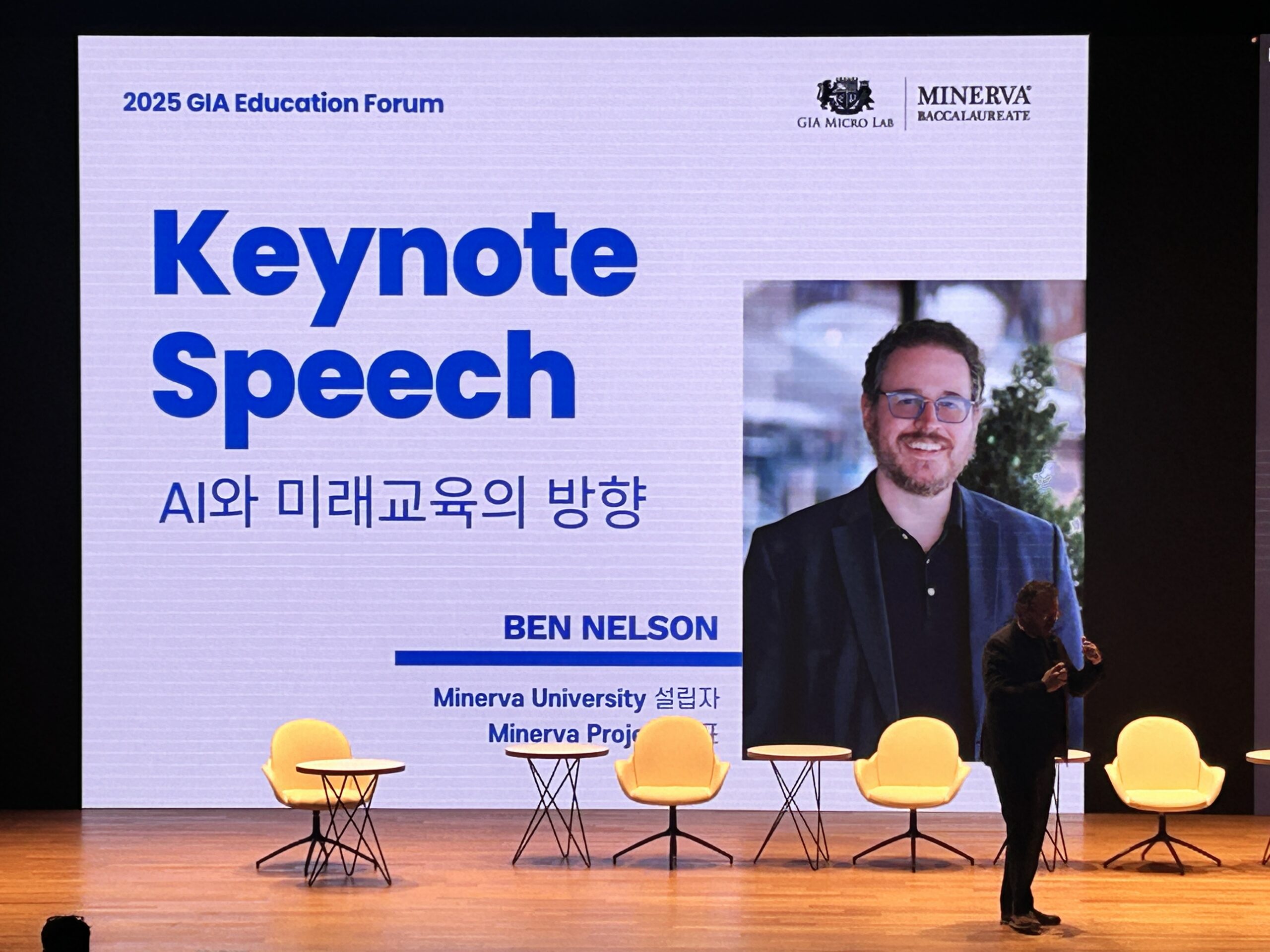On May 15, the 2025 GIA AI Future Education Forum, hosted by GIA Microlab, took place at COEX in Seoul. The event brought together domestic and international experts committed to reimagining the future of education.

Ben Nelson, founder of Minerva University, delivers his keynote at the forum. “The ability for students to make their own decisions—that is the core of future education,” he said, illustrating his point with examples from Minerva’s own curriculum. At Minerva, students do not simply memorize facts. Instead, they engage in online discussions, project-based learning, and receive real-time feedback, all designed to foster critical thinking and problem-solving skills.
Im Sung-yoon, CEO of GIA Microlab, echoed this sentiment. “AI is not a replacement for teachers, but a tool to unlock each student’s potential,” he said. By analyzing individual learning data and providing tailored feedback, AI enables teachers to become mentors who guide and support student growth.
Beyond Grades: New Models for Assessment and Learning
The forum introduced a range of non-traditional education models, including the Mastery Transcript, Minerva Baccalaureate, and School of Humanity, all of which move beyond conventional report cards.
Developed by the U.S.-based Mastery Transcript Consortium (MTC), the Mastery Transcript does not record grades or rankings. Instead, it documents what students can actually do and the competencies they have acquired. This information is managed as an online digital portfolio, visually showcasing projects, assignments, and hands-on experiences. Colleges and employers can easily assess a student’s growth and real-world skills through this portfolio.
The Minerva Baccalaureate adapts Minerva University’s innovative approach for secondary education. Rather than following traditional subjects, students complete a curriculum focused on critical thinking, creativity, collaboration, and communication—skills essential for the future. All classes are structured around online discussions, real-time feedback, and real-world problem-solving projects. Students work in teams to analyze social issues, design and implement solutions, and receive multifaceted evaluations from peers and instructors. Through this process, they naturally develop self-directed learning and practical problem-solving abilities.
The School of Humanity empowers students to choose their own topics, carry out projects, and expand their learning through collaboration with mentors and peers. The goal is not simply to acquire knowledge, but to create real social impact and meaningful change.

A panel at the GIA AI Future Education Forum. “New systems or technologies alone cannot change the essence of education,” they noted, emphasizing that curiosity, self-direction, and the ability to learn and grow independently are what truly matter.
AI and Humans: Growing Together in the Classroom
AI is a tool for education. It helps identify each student’s strengths and weaknesses, enabling personalized learning experiences. Teachers, in this new paradigm, become mentors rather than mere transmitters of knowledge.
The forum reaffirmed that the goal of education is not to be transformed by technology itself, but to help students discover their potential and learn to grow on their own. AI, data, and innovative educational models are ultimately opening new pathways for both students and teachers to thrive.
현재 연세대에서 정치외교학을 전공하고 있습니다. 대학생의 시각으로 실리콘밸리 스타트업 이야기를 생생하게, 법률 정보는 유익하고 쉽게 전달하겠습니다.
"As a student at Yonsei University studying Political Science and International Relations, I offer a fresh, relatable perspective on Silicon Valley startups. My goal is to make legal information beneficial and easy to understand."



